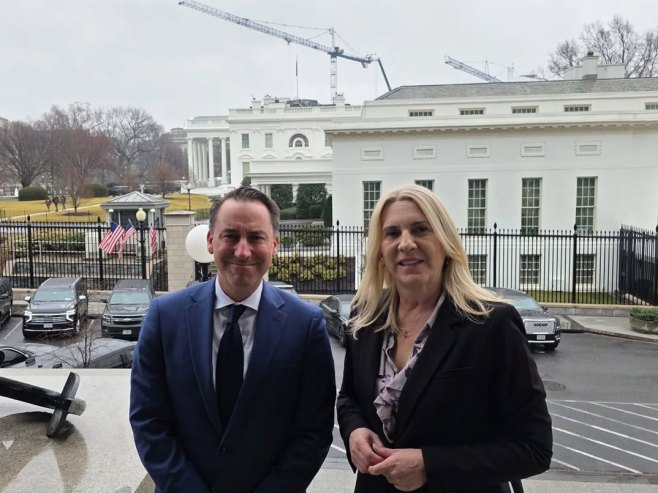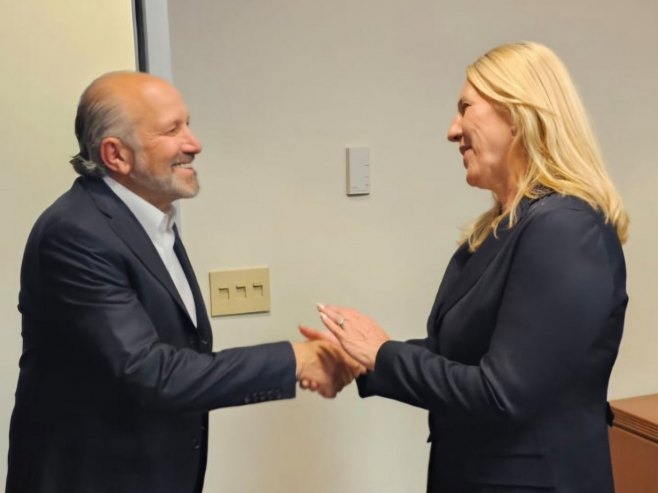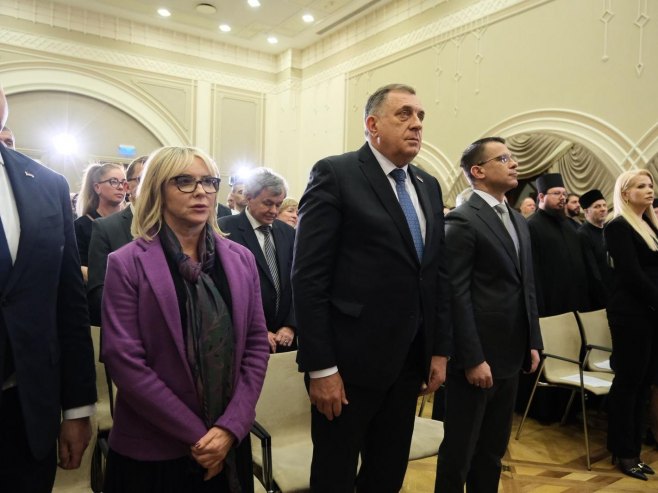On July 8, 2025, Ellen House, Director for Europe at the Office of the U.S. Trade Representative, sent a letter to the BiH Embassy in Washington referencing the meeting between Željka Cvijanović—Serb member and then Chairwoman of the BiH Presidency—and U.S. Secretary of Commerce Howard Latnik regarding trade negotiations between the U.S. and Bosnia and Herzegovina, ATV has learned.
According to the letter, House received instructions from the Office of the U.S. Trade Representative to initiate the negotiation process with BiH. Negotiations are expected to begin in the coming period.
To recall, Cvijanović and Latnik—one of President Trump’s closest advisors—met on May 26 in Washington and agreed to work jointly in the coming weeks on the mutual adjustment of customs tariffs.
“I look forward to continuing our cooperation and further concretizing the topics we discussed,” the Cabinet of the Serb member of the Presidency stated after the meeting with Latnik.
Following the meeting, Cvijanović informed all relevant institutions in BiH about the discussion, with the goal of intensifying efforts to regulate customs tariffs with the U.S.
In a statement requested on the matter, Cvijanović emphasized that she initiated all necessary activities under her jurisdiction on time and warned of the possible consequences of inaction.
“After the U.S. announced the introduction of reciprocal tariffs against BiH, institutions and representatives of Republika Srpska at the BiH level clearly stated that this issue must be resolved through negotiations with the United States,” Cvijanović said.
She added that there had been certain delays, possibly even intentional obstructions, within BiH institutions.
“Nevertheless, we managed to carry out the planned activities, and I expect that negotiations with the United States could begin soon,” the Serb member of the Presidency noted.
Cvijanović also pointed out that trade between BiH and the U.S. is currently at an extremely low level and expressed hope that in the coming period, BiH will be viewed by the U.S. more through an economic lens rather than a political one, which has dominated in past years and decades.
Source: RTRS









